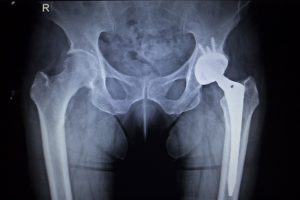Many people who receive hip replacement implants suffer from painful conditions that limit mobility, such as rheumatoid arthritis or osteoarthritis. Hip implants are supposed to improve the quality of life for these people by granting improved mobility and independence. However, several manufacturers have faced lawsuits for defective hip implants that caused significant health problems for these people.
Metal-on-metal devices may cause the most significant health problems. For example, people implanted with Stryker Corporation’s Rejuvenate Modular and ABG II hip implants have reported metal poisoning. Metal poisoning (metallosis) can lead to cardiomyopathy and heart failure. It can also cause organ damage, infections, cognitive impairment and thyroid problems. Metallosis occurs when metal parts on hip implants rub together and release metals into the bloodstream. In this case, the ABG II and Rejuvenate implants use necks made of chromium and cobalt, and stems coated with titanium.
Additional adverse event reports sent to the Food and Drug Administration include, muscle damage, bone fractures, and pain and discomfort.
Is Corrective Surgery Required for Defective Hip Implants?
While hip implants are expected to be replaced through surgery every 10 to 30 years, the devices we discussed on our blog today can fail much sooner.
In some cases, people implanted with the devices listed above are forced to undergo corrective surgeries. According to a study published in the Iowa Orthopedic Journal, first-time hip replacement surgeries have a failure rate of 1 percent. This rate increases to 2.5 percent for corrective surgeries! Risks associated with these surgeries include infection and blood clots.
The New Jersey personal injury attorneys at Keefe Law Firm have settled claims with hip replacement manufacturers. We will fight for individuals and families who have been harmed by these defective devices.

